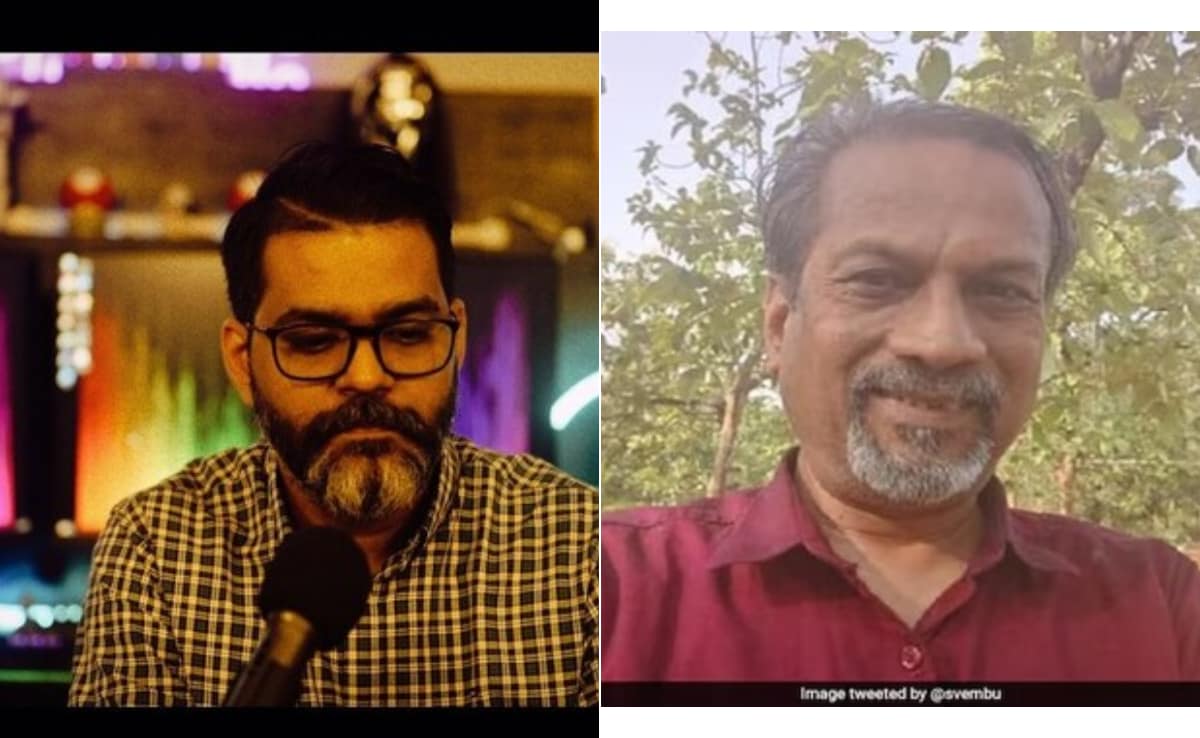The Controversy Over Cow Urine and Science

In recent weeks, a heated debate has emerged in India regarding the medicinal properties of cow urine, igniting discussions among prominent figures in the scientific and business communities. Dr. Cyriac Abby Philips, known as ‘The Liver Doc,’ has taken a strong stance against Sridhar Vembu, the co-founder and CEO of Zoho, for supporting the claims made by IIT Madras Director Prof. V. Kamakoti. Prof. Kamakoti has suggested that cow urine, or gomutra, possesses various health benefits, including antibacterial and digestive properties. This assertion has drawn significant criticism, particularly from Dr. Philips, who emphasizes the importance of scientific evidence in medical discussions.
The Role of Influencers in Public Health Discourse
Dr. Philips has called out influencers like Vembu for their responsibility in shaping public opinion. In a recent post on social media platform X, he expressed his frustration with the spread of misinformation. He stated, “As a person of influence, focus on spreading valuable information about how we, as a community, can advance through science and the scientific method.” His remarks highlight the crucial role that public figures play in disseminating accurate information, especially in health-related matters.
Dr. Philips argues that endorsing outdated therapies and pseudoscience can mislead the public and undermine trust in legitimate medical practices. He specifically criticized the promotion of cow urine therapy, urging influencers to prioritize scientific understanding over traditional beliefs that lack empirical support. The Liver Doc’s comments serve as a reminder that the intersection of science and social media can have profound implications for public health.
The Scientific Basis of Medical Treatments
The controversy intensified when Prof. Kamakoti claimed that cow urine could effectively treat conditions like Irritable Bowel Syndrome (IBS). Critics, including Dr. Philips, quickly dismissed these claims as pseudoscience. Dr. Philips pointed out that there is no scientific evidence to support the therapeutic use of cow urine. He emphasized the importance of relying on proven medical practices, such as fecal transplants, which have a solid scientific foundation.
Fecal transplants involve transferring stool from a healthy donor to a patient, helping to restore gut bacteria. Dr. Philips has been a pioneer in this field, using it to treat severe alcohol-associated hepatitis. He encourages those interested in the science behind fecal transplants to explore the research and studies available. By contrasting the scientific basis of fecal transplants with the unproven claims about cow urine, Dr. Philips aims to clarify the distinction between legitimate medical practices and those lacking empirical support.
The Response from Vembu and the Broader Implications
In defense of Prof. Kamakoti, Sridhar Vembu argued that critics of cow urine therapy do not fully understand the evolving nature of scientific inquiry. He pointed out that the growing interest in fecal transplants and fecal pills, particularly from healthy individuals in pre-industrial societies, reflects a shift in how we view gut health. Vembu’s comments suggest that he believes there is merit in exploring traditional remedies alongside modern science.
However, Dr. Philips countered this perspective by reiterating the need for scientific validation. He urged individuals to educate themselves and avoid spreading misinformation. The debate raises important questions about the balance between traditional medicine and modern scientific practices. As discussions continue, it is essential for both influencers and the public to critically evaluate health claims and prioritize evidence-based medicine.
Observer Voice is the one stop site for National, International news, Sports, Editor’s Choice, Art/culture contents, Quotes and much more. We also cover historical contents. Historical contents includes World History, Indian History, and what happened today. The website also covers Entertainment across the India and World.
Follow Us on Twitter, Instagram, Facebook, & LinkedIn

